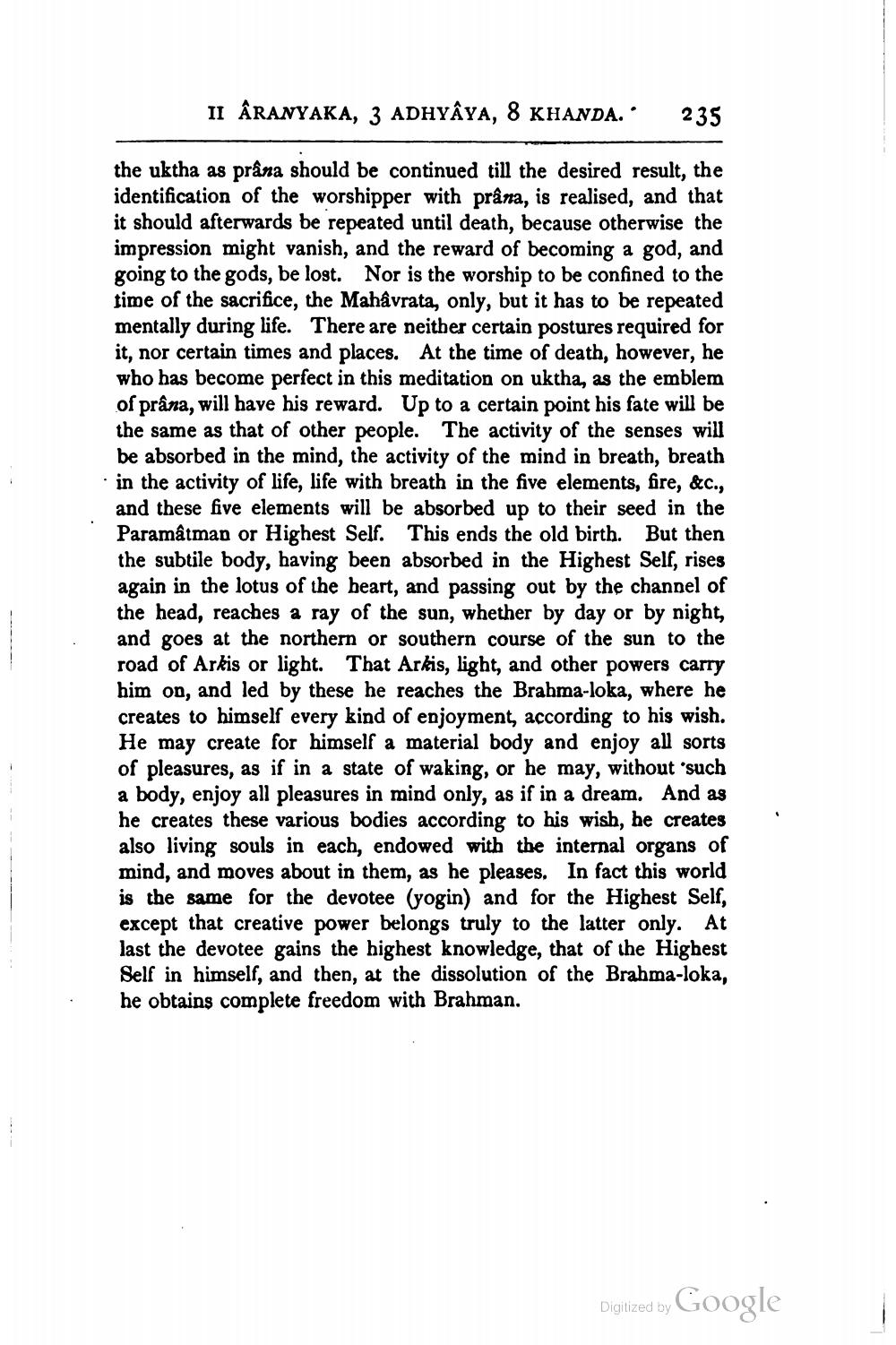________________
II ARANYAKA, 3 ADHYAYA, 8 KHANDA. •
235
the uktha as prâna should be continued till the desired result, the identification of the worshipper with prâna, is realised, and that it should afterwards be repeated until death, because otherwise the impression might vanish, and the reward of becoming a god, and going to the gods, be lost. Nor is the worship to be confined to the time of the sacrifice, the Mahâvrata, only, but it has to be repeated mentally during life. There are neither certain postures required for it, nor certain times and places. At the time of death, however, he who has become perfect in this meditation on uktha, as the emblem of prâna, will have his reward. Up to a certain point his fate will be the same as that of other people. The activity of the senses will
be absorbed in the mind, the activity of the mind in breath, breath · in the activity of life, life with breath in the five elements, fire, &c., and these five elements will be absorbed up to their seed in the Paramâtman or Highest Self. This ends the old birth. But then the subtile body, having been absorbed in the Highest Self, rises again in the lotus of the heart, and passing out by the channel of the head, reaches a ray of the sun, whether by day or by night, and goes at the northern or southern course of the sun to the road of Arkis or light. That Arkis, light, and other powers carry him on, and led by these he reaches the Brahma-loka, where he creates to himself every kind of enjoyment, according to his wish. He may create for himself a material body and enjoy all sorts of pleasures, as if in a state of waking, or he may, without such a body, enjoy all pleasures in mind only, as if in a dream. And as he creates these various bodies according to his wish, he creates also living souls in each, endowed with the internal organs of mind, and moves about in them, as he pleases. In fact this world is the same for the devotee (yogin) and for the Highest Self, except that creative power belongs truly to the latter only. At last the devotee gains the highest knowledge, that of the Highest Self in himself, and then, at the dissolution of the Brahma-loka, he obtains complete freedom with Brahman.
Digitized by Google




